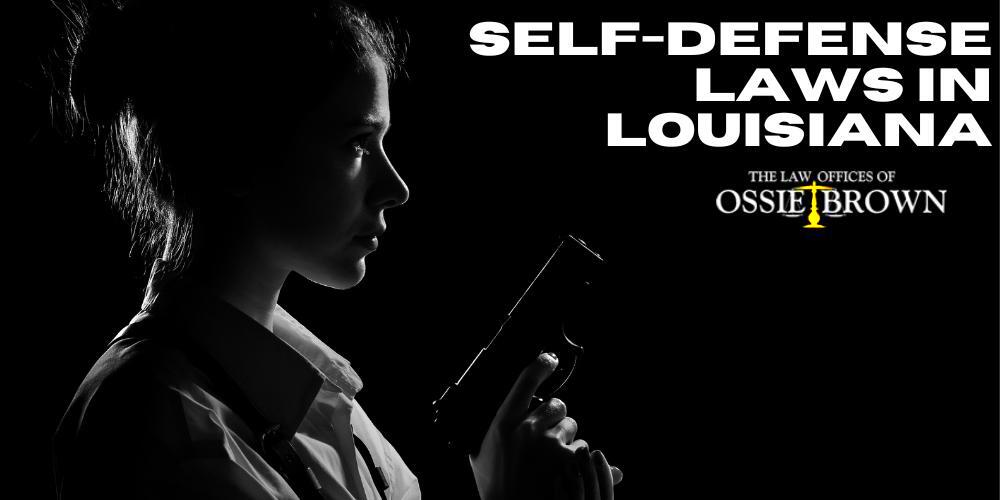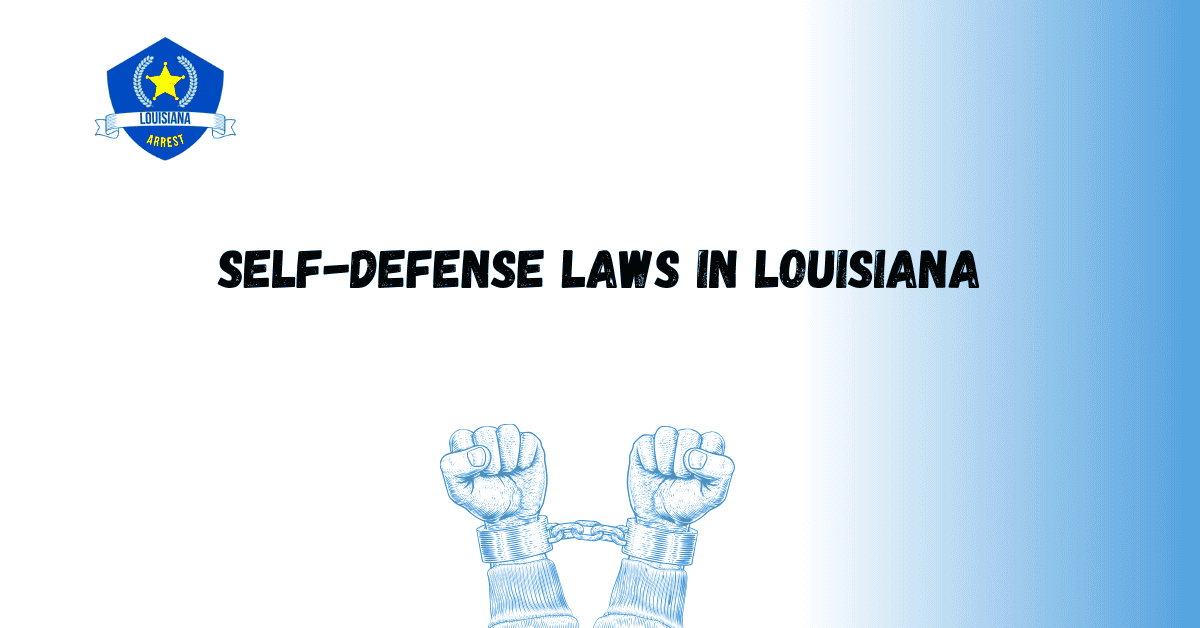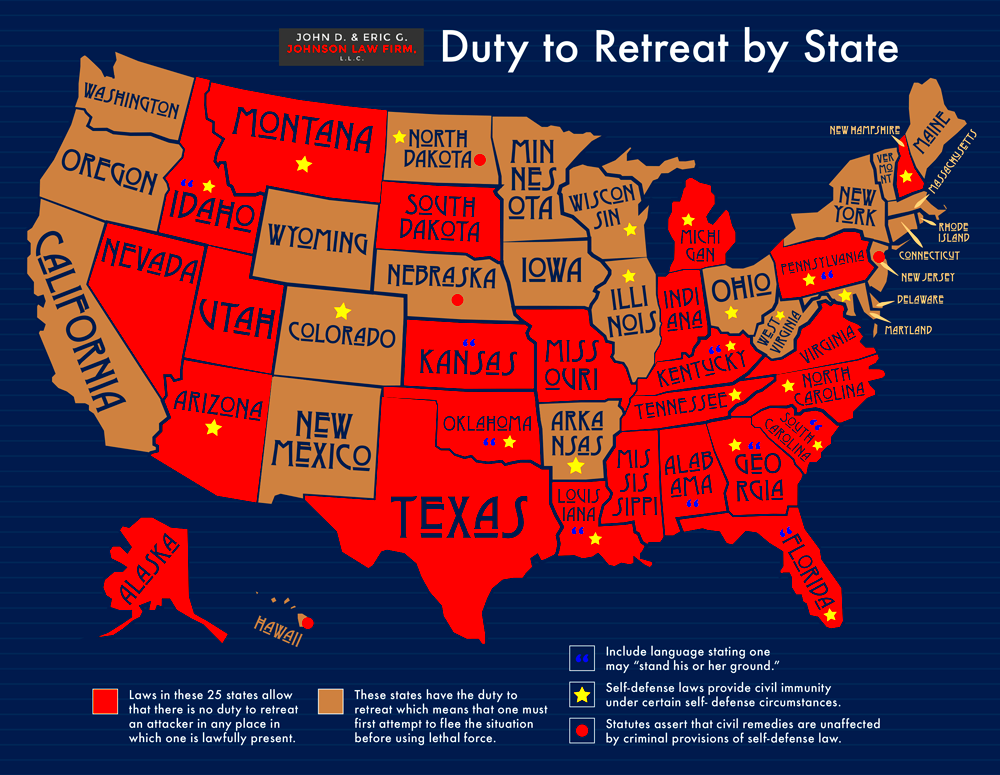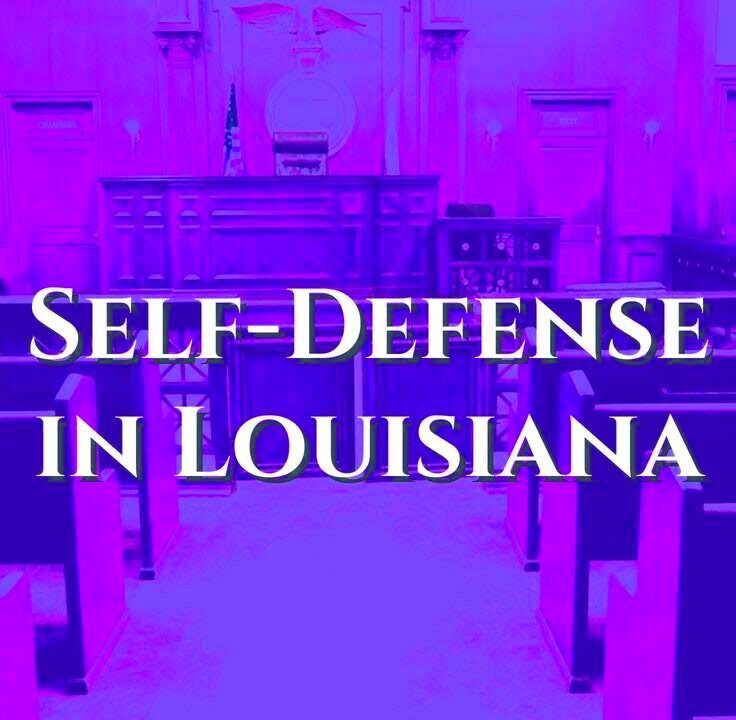Navigating Louisiana Self-Defense Laws
Understanding the limits of self defense laws is essential when it comes to safeguarding yourself. In Louisiana these laws are in place to protect individuals, their loved ones and their belongings. However grasping the intricacies of these laws can be quite challenging. Drawing from my own experiences I can attest to how bewildering it can be to navigate the legal maze just to get a handle on your rights. This guide aims to simplify the key elements of self defense laws in Louisiana so that you can more easily discern what is allowed and what isn’t.
Understanding the Basics of Self-Defense in Louisiana

In Louisiana self defense laws are based on the idea that people can protect themselves from threats. However this right is not unconditional and is subject to specific legal requirements. Here’s a brief summary of the key points.
- Reasonable Fear: You must have a reasonable fear of imminent harm. This fear should be based on a genuine belief that you or someone else is in immediate danger.
- Proportional Response: Your response must be proportional to the threat. For instance, using deadly force is only justified if you believe that the threat of harm is severe or life-threatening.
- Duty to Retreat: Louisiana does not generally require you to retreat from a threat if you are in a place where you have a legal right to be. This is known as the “Stand Your Ground” principle.
Grasping these fundamentals enhances the appreciation of how Louisiana law strikes a balance between self defense and preventing the misuse of force. This legal structure aims to safeguard individuals, while upholding public safety.
Key Elements of Justifiable Self-Defense

To establish the justification of selfdefense according to Louisiana law certain criteria must be fulfilled. Based on an analysis of different cases and legal counsel here are the aspects that need to be demonstrated:
- Imminent Threat: There must be a clear and present danger of harm. This means that the threat is not hypothetical or speculative but an immediate risk.
- Actual and Reasonable Belief: You must have a sincere belief that the threat is real and that your response is necessary to protect yourself or others. This belief should be based on the circumstances as you perceived them at the time.
- Proportional Force: The force used in self-defense must be proportional to the threat faced. Excessive force, or using deadly force when not warranted, can lead to legal consequences.
- Non-Aggressor Status: You must not have provoked the attack or engaged in any illegal activity that led to the confrontation. If you were the aggressor, the right to self-defense may not apply.
These factors play a role in deciding the validity of a self defense argument in a courtroom. Insights and guidance often underline the significance of effectively showcasing these elements with clarity and persuasion.
Stand Your Ground Laws in Louisiana

- Right to Remain: You are not legally required to retreat from a threat if you are in a place where you have a right to be. This applies whether you are at home, work, or even in public spaces.
- Use of Force: If you are faced with an imminent threat of serious harm or death, you have the right to use force, including deadly force, without the duty to first attempt to escape.
- Legal Protection: This law provides legal protection to those who use force under these circumstances, offering a strong defense against criminal charges or civil liability.
Castle Doctrine and Its Application
The Castle Doctrine plays a role in the self defense laws of Louisiana. Based on my personal experiences and conversations with legal professionals its evident that this doctrine offers significant safeguards for homeowners. Lets delve into its application.
- Home Defense: The doctrine allows individuals to use force, including deadly force, to defend their home against intruders. This principle is based on the idea that one’s home is a sanctuary that must be defended.
- No Duty to Retreat: Unlike other situations, you are not required to retreat if an intruder unlawfully enters your home. You can defend your home without first trying to escape.
- Reasonable Force: The force used must be reasonable and proportionate to the threat posed by the intruder. Deadly force is only justified if the intruder poses a significant threat to your safety.
Implementing the Castle Doctrine can be tricky and real life situations often underscore the significance of knowing its boundaries. While it serves as a shield it should be exercised in accordance with legal parameters.
Legal Consequences of Using Force
Resorting to force, even when defending oneself, can have serious legal repercussions. Through personal experiences and observations of the legal system, I have witnessed the complexities that arise after the use of force. Here are some key points you should be aware of.
- Criminal Charges: Depending on the circumstances, you might face criminal charges such as assault or even homicide. The justification for using force will be thoroughly investigated.
- Civil Liabilities: Even if criminal charges are not filed, you may still face civil lawsuits from the injured party or their family. This can result in significant financial liability.
- Legal Defense Costs: Defending yourself in court, whether criminally or civilly, can be expensive. It’s important to consider the potential costs of legal defense when using force.
Grasping the implications of your actions can aid in making choices. The law can be harsh so it’s vital to be ready for potential consequences. Personal encounters often highlight the significance of seeking advice from experts to navigate these obstacles successfully.
How to Build a Strong Self-Defense Case
In Louisiana, crafting a strong self defense case goes beyond knowing the legal intricacies; it involves meticulous groundwork and compelling proof. Through my personal encounters and conversations with experts in the field, I’ve come to realize that an effective defense hinges on several crucial factors:
- Gather Evidence: Collect any evidence that supports your claim of self-defense. This includes photographs of injuries, video footage from security cameras, and witness statements. Every piece of evidence can be crucial in establishing the context and validity of your defense.
- Document the Incident: Write a detailed account of the incident as soon as possible. Include everything from the events leading up to the confrontation to the actions you took in response. Accurate documentation helps ensure that your recollection remains clear and consistent.
- Establish the Threat: Demonstrate that you faced an imminent threat. This could involve showing that the aggressor had a weapon or that they had a history of violence. The more you can establish the seriousness of the threat, the stronger your case will be.
- Consult an Expert: Seek advice from a legal expert specializing in self-defense cases. They can help you navigate the complexities of the law and provide guidance on how best to present your case.
To build a case it’s crucial to pay close attention to the details and have a solid grasp of the law as well as the unique aspects of your situation. I’ve found that the time and energy invested in preparation can greatly impact the result of a self defense argument.
Seeking Legal Assistance for Self-Defense Cases
When dealing with a self defense situation getting the right legal support can really change things. Based on what I’ve seen the selection of a lawyer and their strategy in managing your case can significantly influence the outcome. Here’s some guidance on how to seek assistance.
- Choose Specialization: Look for attorneys who specialize in self-defense and criminal law. Their expertise will be crucial in navigating the legal complexities specific to self-defense cases.
- Evaluate Experience: Assess the lawyer’s experience with similar cases. An attorney with a proven track record in self-defense cases will be better equipped to handle the nuances of your situation.
- Discuss Strategy: Have a detailed discussion about how the lawyer plans to approach your case. Understanding their strategy and being on the same page can help build a stronger defense.
- Consider Personal Rapport: Choose a lawyer you feel comfortable with. A good attorney-client relationship can make the stressful process more manageable and ensure that your concerns are heard and addressed.
From what I have seen choosing the right lawyer is an important decision. It not affects your defense but also offers comfort during what can be a challenging journey.
Frequently Asked Questions About Louisiana Self-Defense Laws
A lot of folks are curious about the laws on self defense in Louisiana and clearing up these common inquiries can really help shed some light. Here are a few questions that come up often along with their responses.
- What is the difference between self-defense and justifiable homicide? Self-defense is a broader concept that includes any reasonable action taken to protect oneself from imminent harm. Justifiable homicide specifically refers to killing someone in self-defense when there is no other reasonable means to protect oneself.
- Can I use force if I am the initial aggressor? Generally, if you are the aggressor, you lose the right to self-defense. However, if the situation escalates and you are faced with an imminent threat of serious harm, the right to self-defense may be restored if you retreat and no longer provoke the threat.
- Do I need to retreat if attacked in my home? No, under Louisiana’s Castle Doctrine, you do not have to retreat if you are attacked in your own home. You have the right to use force to defend yourself without first trying to escape.
- What should I do immediately after a self-defense incident? Contact the authorities and report the incident. Seek medical attention if needed, and consult with a lawyer as soon as possible to protect your rights and ensure your actions are legally justified.
By tackling these queries we can shed light on the complexities of the laws regarding self defense in Louisiana. Seeking tailored legal guidance is always wise to address individual concerns and situations.


